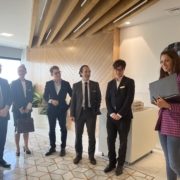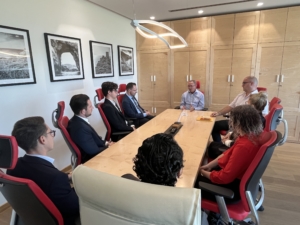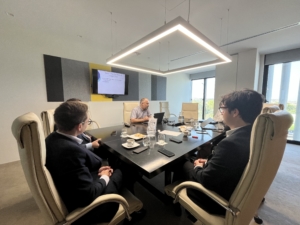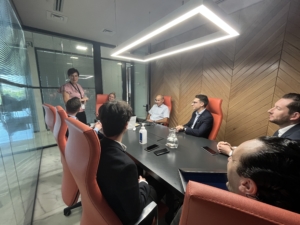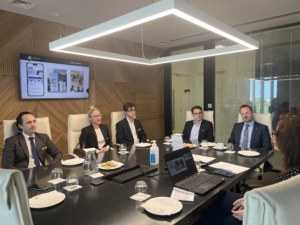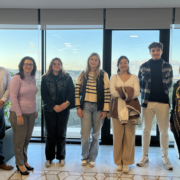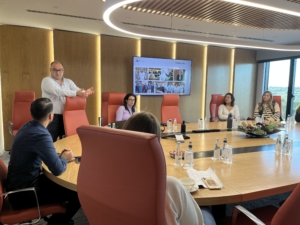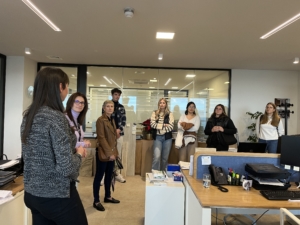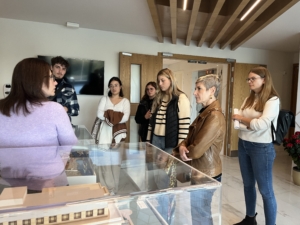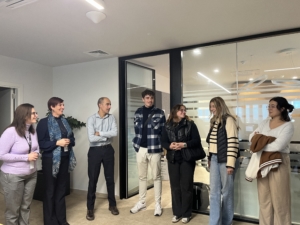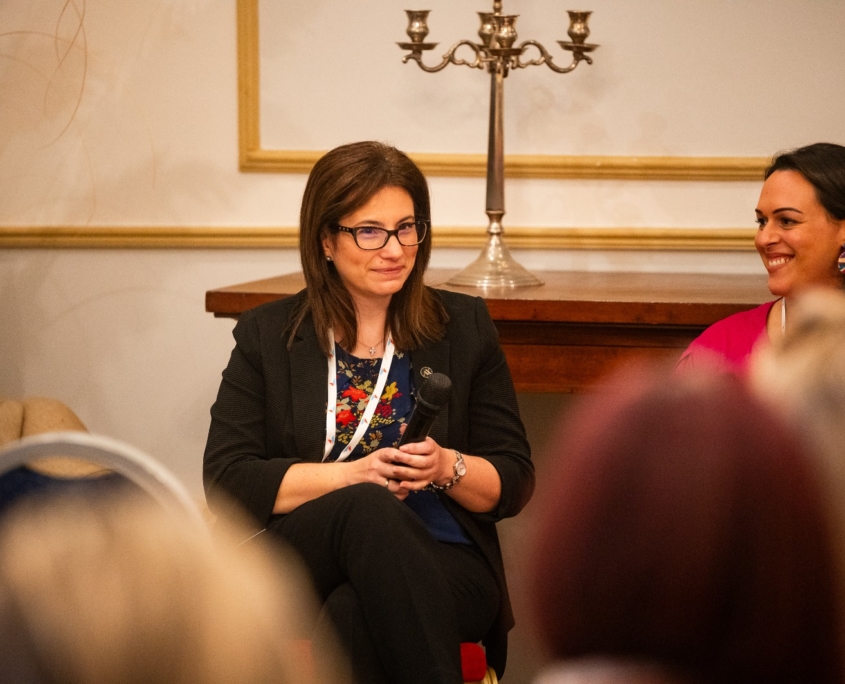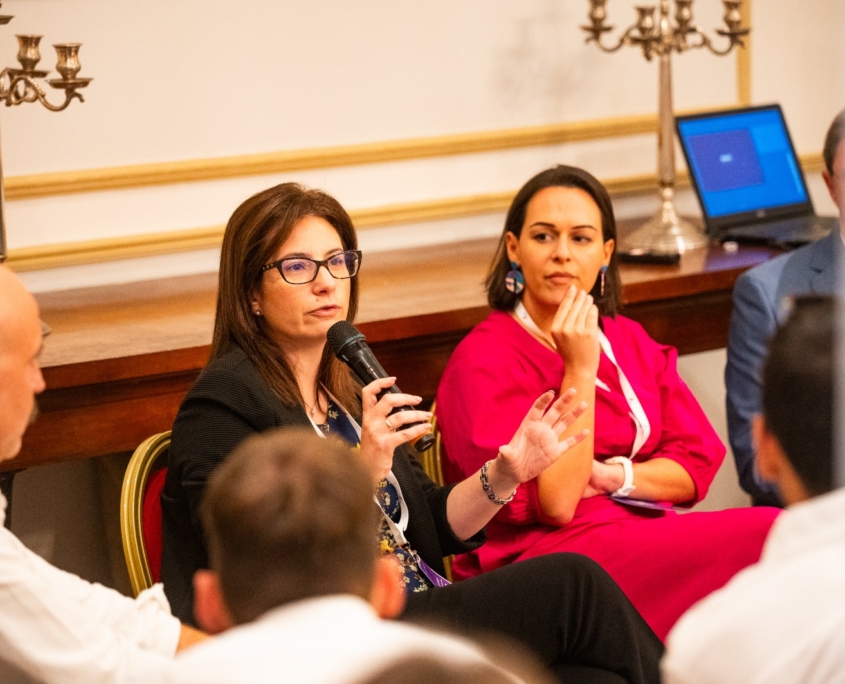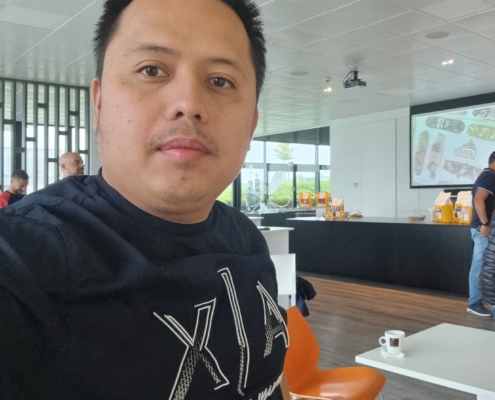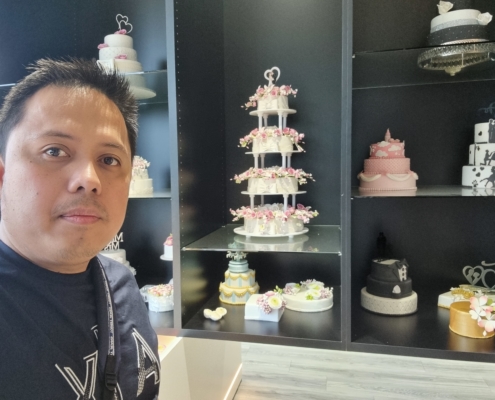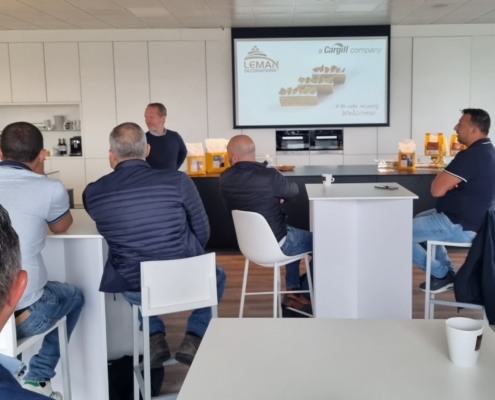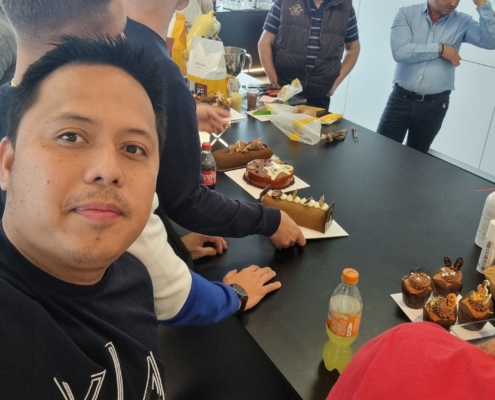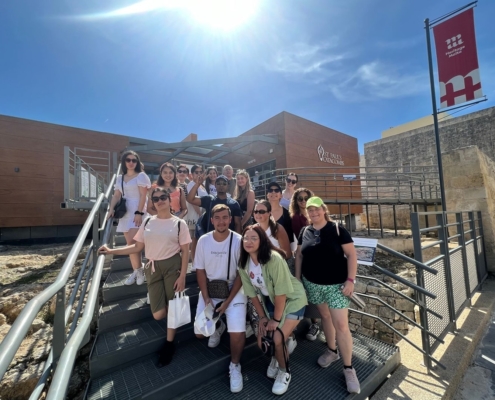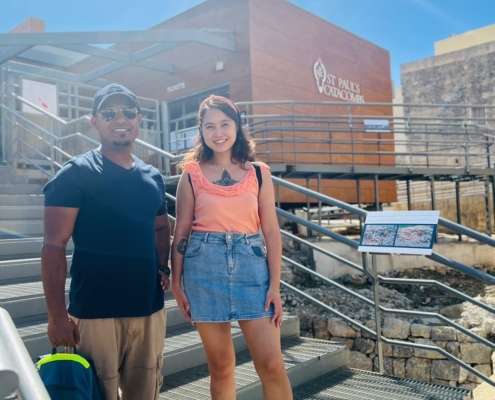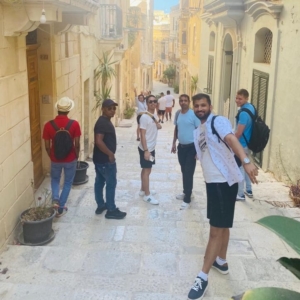Insights from AX Group Internships at AX Odycy Hotel, Qawra
Internships at AX Group act as a crucial link between academic knowledge and practical application which offers young professionals a valuable hands-on experience. Welcomed by management, our interns are introduced to various team members across divisions to become familiar with the organisation’s functions, visions and gain knowledge essential for their roles.
Beyond skill acquisition, at AX Group we place emphasis on career and personal development, which is essential for both individual growth and organisational success. Entering the workforce can be challenging for new joiners and for this reason, our career development program plays a pivotal role in strengthening our interns’ confidence. At AX Group we provide interns with the tools and resources needed to navigate the complexities of the professional world. “Confidence is not only crucial for personal growth but also for fostering a positive and productive work environment” commented Ms. Joseanne Tanti, Human Resources Manager at AX Hotels, Qawra.
During our career development initiatives, including workshops and mentorship programs, interns get to connect with experienced professionals, mentors, and peers across the various sectors of AX Group, opening doors to opportunities and providing insights into industry trends. Designed to enhance interns’ skills, our career development activities help them in setting realistic career goals, empowering them to make informed decisions about their future paths.
While technical skills are essential, we greatly value the soft skills of our people. And what better way to address these skills than by welcoming them in an environment where effective communication, collaborative teamwork, and contributions to a positive workplace culture are part of who we are. “At AX Group, the significance of career development extends beyond the internship period, we aim to help interns evolve into well-rounded professionals that can confidently contribute to a dynamic professional landscape” remarks Ms. Tanti.
Recently, three interns gained a six-month exposure at the newly refurbished AX ODYCY Hotel in Qawra and shared insights on their experience with us.
Deborah Boucher – Human Resources Intern
“This international experience at AX Odycy Hotel in Qawra was not only professionally enriching but also personally rewarding. From the moment I set foot at AX Group I was warmly welcomed by a positive and inclusive work environment. The multinational team I had the privilege to work with created an atmosphere that encouraged collaboration and cross-cultural understanding.
Working alongside seasoned professionals who provided me with feedback and guidance contributed significantly to my academic and personal growth and enhanced my understanding of the global job market. Networking events, workshops, and social gatherings were valuable opportunities to make new connections with professionals from various industries, opening doors to potential future collaborations and opportunities.
These experiences have provided me with a well-rounded skill set that goes beyond the technical aspects of my field. The positive atmosphere, diverse learning and networking opportunities, and cultural exposure I had the opportunity to be part of have all contributed to shaping my journey. Reflecting on this, I am grateful for the rewarding opportunity that has set the stage for a promising and globally oriented future.”
Alberto – IT Intern
“During my internship at AX Odycy Hotel I had the opportunity to interact with colleagues from various departments, each showcasing countless abilities with a great sense of respect and collaborative teamwork. The experience allowed me to acquire a diverse range of IT-related skills, encompassing everything from software usage to managing networks, configurations and more. Interacting with my colleagues in everyday conversations and collaborative efforts not only expanded my technical expertise but also contributed to improving my spoken English, broadening my understanding of technical matters.
The management at AX Group played a significant role in my professional growth by consistently offering support and guidance whenever needed. Their inclusive approach made me feel not just like an intern but an integral part of the team. Achieving the goals set during my internship and becoming immersed in the welcoming company culture at AX Group are moments of pride for me. The positive and supportive atmosphere fostered by both colleagues and management has truly made my experience at AX Odycy Hotel a fantastic one.”
Pasquale Rosato – IT Intern
“Throughout my internship at AX Group, management, and colleagues across different departments, were supportive, friendly and took the time to answer questions, making it a welcoming and enriching learning experience.
The cultural diversity within the team and across the different sectors added a valuable dimension to my time at AX Odycy Hotel in Qawra. This diversity gave me ample opportunities to form new friendships and gain insights into different cultures. Being part of a team with diverse nationalities and backgrounds for six months made me feel welcomed contributing to a smoother learning journey.
One particularly proud moment during my internship was when my tutor entrusted my colleague and me with the responsibility of developing a web page for all the AX Hotel’s televisions. Although the project is still in development stage, the daily progress makes me proud of my contribution, providing a sense of motivation, empowerment and belonging. I highly recommend this internship, not just for the valuable experience of working abroad, but also for the supportive and positive work environment I found at AX Group.”



